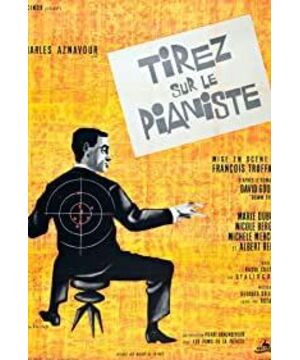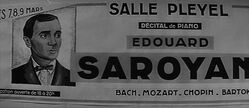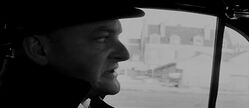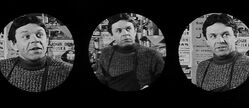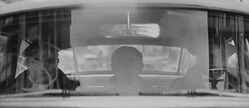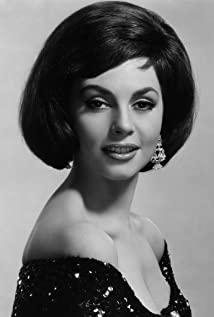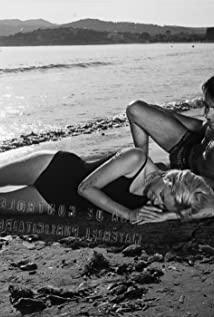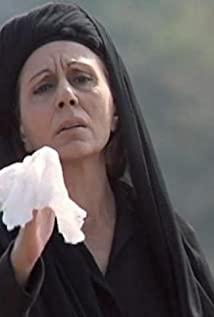Today, I watched the very famous Bonnie and Clyde, the beginning of the new Hollywood style. Rebellious, young, and fearless, trying to dash for a way out. This movie has a very famous poster. The slogan on the poster is They are young. They are in love. And they kill people. Not stupid, they are two children.
And this film is deeply influenced by two New Wave films, one is Godard's "Outlaws" and the other is Truffaut's "Shooting the Pianist".
There's a lot of parody/irony of classic Hollywood genres and scenes in Shoot the Pianist. This reversal is for the expectations of the twist audience, thereby breaking the audience's expectations for a specific type of film, and also breaking the audience's attempt to classify the film as a specific type of film. For example, in the tense moment when the kidnapper and the hostage are in the same space, the director uses a comic effect instead. When the two kidnappers kidnapped the pianist and the girl he liked, they discussed women and wearing silk stockings together. When they kidnap Fido, the pianist's little brother, they show the kids their musical lighters, watches, and all kinds of quirky gadgets. This control of the rhythm relieves the tension and relieves the pressure, which makes the comedy element especially funny because it is out of time and beyond expectations. This technique is not uncommon in later comedy movies, and the stupid kidnappers have also become a certain type of character. In the Coen Brothers' "Fargo," for example, the chattering Steve Buscemi and his big, silent partner form a silly pairing that takes what should be a tense scene casually, so Full of joy. Even in "One Page of Taipei", there are similar passages. Gao Gao was kidnapped into the car, and he still looked like he couldn't understand the situation. He said thank you for taking me. My house is right in front of me. Then I was also talking about women and relationships, and in the end I actually played mahjong together...
But what's so serious about Fargo and the pianist who shoots and kills is that no matter how stupid the kidnappers are, they still have guns and can kill people. The stuffy big guy in the Fargo was so tough he could shove Buscemi right into the meat grinder. Then they were no longer stupid, they were savage and brutal.
like beasts.
In the shooting of the pianist, the two older brothers of the pianist were essentially the same people as the kidnappers. Just like a wild beast, uncivilized and uncivilized, killing people if they disagree. Also stupid and naive. But cruelty and innocence are two sides of the same coin. The pianist is slender, weak, melancholy, and ambiguous.
This is a rebellion against the traditional "masculine and tough" image.
In the film, except for the pianist, other males are "male animals", masculine, but not human at all. The film's influence on "Bonnie and Clyde" is also subtle. In a sense, Clyde satisfies the traditional "masculine and tough" image. He robs banks, kills people with guns, and has a criminal record. But at the same time, he's kind, naive, and even a little vulnerable, and the film alludes to his impotence (so the pistol is his "tool", and the robbery and violence are his love making). Such a somewhat fragile male image is actually very moving, and it will stimulate the tenderness of women. Women's worship of traditional masculine men is more like the materialization of patriarchal imagination, and those masculine men are the embodiment of patriarchy. It's not even about love, it's about power. And pity is about love.
The male protagonist in this film is thin, melancholy, gentle, ambiguous, an artist, with worried eyebrows and eyelashes covered like butterflies - Mr. Yi in Lust Caution is also like this. Even Hu Lancheng was like this. Of course, Hu Lancheng has lowered his style a lot because of his softness and narcissism and rhetoric in his bones, but the essence is also such a temperament, which can satisfy Eileen Chang's fantasy. Just look at what she wrote about Mr. Yi. And Wang Jiazhi's momentary love for Mr. Yi, of course, has its own narcissistic side, but it is also a kind of pity.
And such a male protagonist is especially feel connected when he bears the pain of life. His repeated fate cannot escape the entanglement with the waitress, and the beloved women die one after another. His outward reaction even seemed cold. This is also a late-stage cancer patient.
I really like the use of monologues in movies.
In fact, generally speaking, movies use motion to tell a story, and the picture should be used to the greatest extent. Even in the novels, it is advocated to describe the person's external demeanor rather than directly expressing his mental activities.
But the beauty of the movie is that the novel has only one channel, and it is difficult to write the inner part at the same time. There must be a sequence, while the movie has two tracks: picture and sound. The picture shows a person’s performance, and the sound is the sound. Show a person's heart, do it well, there will be a contrasting effect.
This movie does just that.
I have to say that although many of the scenes in it exist for the purpose of going against the tradition of genre films - for example, in the tense chase scene, the hero is thinking about whether I should hold her hand or not, and will she think that I am too frivolous ? ——But the lightness caused by this interspersed and contrasted, I also suspect that it is the temperament peculiar to France.
I remember reading Zhou Jianing’s conversation with someone before, saying that before they read a lot of French and American literature, they would think that American literature is light, while French literature has heavy things (this probably comes from Hugo and Balzac But in fact, on the contrary, American literature has a very sad and dark side, while French literature has its own lightness.
This movie is also about the sadness and confusion of life, but it has its own lightness and beauty that is irrelevant, hidden in the narrative and in the perspective. It is the tiny details in life, and the sadness is because it comes from the daily life and is hidden in the folds of the tiny details of life, which makes you feel that you are unavoidable. Life is sad.
I really like the face of the hero in the monologue. His eyes are hesitant and shy, but he lowers his eyebrows like a Bodhisattva—the lowering of his eyebrows is because he can't bear it. Let people suddenly see the image of a lonely, introverted man with rich inner drama. This image exists in Kafka's novels and in the figure of the French literary salon. They are arrogant, but hesitant, "I want to touch and then withdraw my hand", these childish moments are the most moving.
I still watch too few movies, and of course read too few books. If the accumulation is richer, there will probably be more sophisticated eyes.
Watch more, watch carefully, watch again and again. There is no other way.
View more about Shoot the Piano Player reviews


